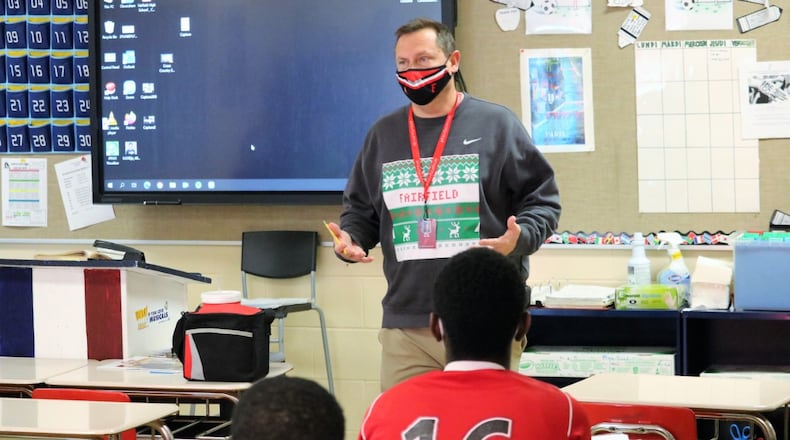Qarantines, which were recently adjusted down from 14 days to seven, dramatically cut into the ranks of available substitute teachers for local schools scrambling to keep classes going while teachers are out.
The recent weeks of rising numbers of coronavirus cases have only worsened the problem, said local school officials. A few, like Fairfield Superintendent Billy Smith, have volunteered to help by stepping in to act as classroom substitutes when none were available.
“The last time I taught in the classroom was around 2004-05. I substituted in the classroom at Fairfield High School a few weeks ago,” said Smith, who’s other job is to lead the 10,000-student district.
Standing back in front of a classroom for eighth-grade social studies was a strange but not unfamiliar experience, said Smith.
“I think it’s great. I’ve always talked about how all of us are members of the Fairfield family. As family members, that is what we do, we help and support when there is a need,” he said.
In Warren County largest school system, the superintendent recently spent some time bussing tables and monitoring student lunches in a school cafeteria to help out during staffing shortage.
Tracey Carson, spokeswoman for the 10,500-student Mason Schools, said “we were short teacher subs, which means our building admins were covering classes. Jonathan and other members of our admin team then stepped in for lunch duty.”
Jonathan Cooper, superintendent of the 10,500-student Mason Schools, said “it’s a wonderful opportunity to connect with students and hear their stories.”
“I love being in the building with my staff and doing whatever it takes to make it possible for us to stay open. It connects me back to my ‘why’- it’s all about our kids,” said Cooper.
Smith said his work as a sub also brought him back to his education foundation.
“It’s always nice to interact with students. During one of the classes, we had some technical difficulties. As a result, I had the opportunity to ask students some questions about the school year (and) hear the perspectives of our students,” said Smith. “We can learn a lot from them.”
About the Author

